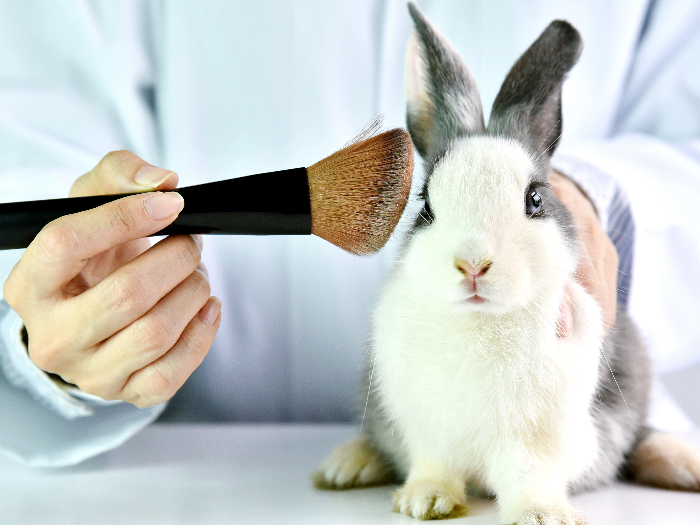Cruelty-free is a buzzword beyond beauty. While for most, it starts with vegan or vegetarian food, it does extend into other spheres such as beauty and health. It is easy to reach for products with a tag as defining as cruelty-free, but what does it entail? Is it truly cruelty-free? How is it better for you than the other products without a tag? Or how is cruelty-free beauty making the world a better place? Let’s take a look at how to best navigate the world of beauty products to find the cruelty-free that you are looking for.
What Does Cruelty-free Beauty Mean?
The most basic idea at the heart of ‘cruelty-free’ is ‘not tested on animals’. Till a few years ago, some products even mentioned the latter to convey it as it is. Today, the cruelty-free tag could mean that and more, or maybe not. While you would expect that companies who label their products ‘cruelty-free’ don’t test it on animals, there may be some loopholes being exploited. On the other hand, they might be doing more good for our furry friends than meets the eye.
Within the US, the FDA regulates beauty products and it does so under the authority of two laws – the Federal Food, Drug, and Cosmetic Act (FD&C Act) and the Fair Packaging and Labeling Act (FPLA). The FD&C Act is meant to prohibit the marketing of adulterated and misbranded cosmetics. The FPLA, on the other hand, authorizes the requirement of an ingredient list for cosmetics marketed as retail goods. [1]
Beyond this, there are no legal restrictions on the use of labels such as cruelty-free. This free labeling is facilitated by a lack of legal definitions for these terms. According to the FDA, some manufacturers might base these claims on the fact that their end products are not tested on animals, while the ingredients used could very well have been tested on animals. [2]

Cruelty-free cosmetics are cosmetics that have not been tested on animals. Photo Credit: Shutterstock
How to Recognise Cruelty-Free Beauty Products?
If you are making a conscious choice to use cosmetics and skincare products that are not tested on animals, there are a few ways you can ensure this. Leaping Bunny and PETA are some of the organizations which certify products. Leaping Bunny is an internationally recognized certification that requires companies to agree to independent audits. Companies included in the list by PETA are required to complete a questionnaire and sign a statement. [3] [4]
You might come across products with a bunny logo and claims such as ‘cruelty-free’, or ‘not tested on animals’. These products could have been tested at the ingredient-level or tested by third parties on behalf of the company.
Apart from this, if the products are being sold in China, chances are that they are being tested on animals. While it was a definite legal requirement a while ago, the country might be transitioning on its position regarding animal testing.
How Are Cruelty-free Products Tested?
If a product is genuinely forgoing animal testing, which was a norm till a few years ago, how is it testing its products? One of the primary concerns that drive cruelty-free choices is stopping the abuse of animals for human benefit. Another aspect it happens to address is the more precise results achieved by the alternate tests.
These alternative testing methods include:
- Computer modeling
- Human volunteers
- In vitro tests (cell cultures)
- Human tissues
Are Cruelty-free Cosmetics Safe?
Even when not tested on animals, cruelty-free beauty products do undergo tests to determine safety. Thus, unless reports suggest otherwise, they are safe for use.
However, the tag does not mean that these products are free of chemicals or that the ingredients are entirely safe for use. It is best to read labels and get to know your products better. You could be prone to allergies or experience some side-effects.
Also, cruelty-free products are not necessarily vegan. So, there might be animal-derived components in those.
